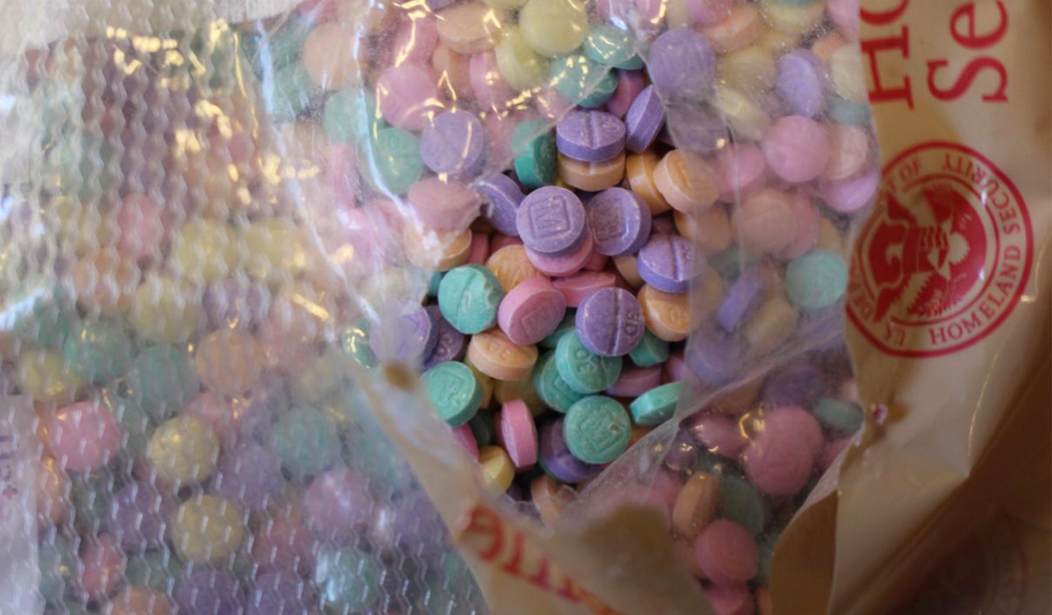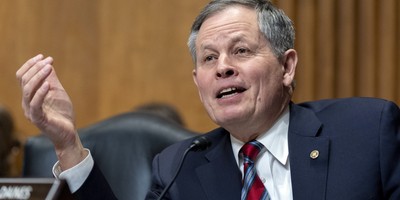The US financial system is one of the most abused in the world, with global kleptocrats laundering money for the drug trade, human trafficking, and hostile regimes—not to mention the national security risks, including the financing of known terrorist groups through the flow of “dark money.”
Gary Kalman of Transparency International U.S., the world’s largest global coalition dedicated to fighting corruption, spoke to Townhall about the Enablers Act. By expanding the Bank Secrecy Act, the law would put anti-money laundering checks on corporate and trust formation agents along with the so-called “gatekeepers” to the American financial system.
“There’s a lot of dirty money coming into the United States from what you would normally consider to be high-risk countries, largely African, South American [and] Asian countries, where you have kleptocracies of people stealing money,” said Kalman.
Kleptocrats are those that essentially steal and leverage state money. They reap off of tax dollars and steal from public coffers.
“If you’re stealing tens of millions or billions of dollars, you need what we refer to as a more sophisticated investment strategy,” stated Kalman, “... you’re going to run it through a bunch of secrecy jurisdictions, set up a bunch of anonymous companies, and eventually invest it in Western economies.”
The Sinaloa Cartel operated through the sale of heroin and methamphetamine in Illinois, Nebraska, Massachusetts, New York, Maryland, North Carolina, Pennsylvania, and other states before laundering the money through a series of “shell” companies in Wyoming which an Arizonian US citizen controlled.
Recommended
Enablers would introduce a level of accountability, and through various sharing agreements with trusted governments, it would allow money to be traced to crack down on those abusing the financial system and threatening national security.
Kalman cited the anti-human trafficking group Polaris Project. In 2018, they looked at 6,000 illicit massage businesses in the US, with over 70% having no ownership.
“They could arrest the women that were being trafficked that they found at the location, but they couldn’t actually go after the perpetrators of the trafficking operations because they were never able to know who was behind them,” he noted.
But who are the “kingpins” in these businesses? The kleptocrats.
One of the leading generals in Venezuela had assumed such a role—General Padrino López. He had been stealing money and laundering it through a paint company north of Miami to suit his luxurious lifestyle, contradictory to his socialist messaging to the people.
Sanctioned individuals navigate the US financial system with ease by setting up these anonymous shell companies, typically located in other countries. They use these shell companies to make purchases, like for property.
“The US is, arguably, the easiest place in the world to hide dirty money. … There are tons of companies that are corporate service provider companies, and you can just walk into any one of them,” stated Kalman. “In Delaware, there’s a two-story building that is theoretically home to 200,000 companies … It’s all post office boxes and obviously not people.”
Enablers would allow the identification of those owners. It would also implement a Suspicious Activity Report with the Financial Crimes Enforcement Network. Typical red flags would be a financier’s representative refusal to disclose their name or other attributes to identity.
Regarding the crimes this bill would impact, Kalman simply responded, “Any crime other than crimes of passion are financial crimes. … If you can’t follow the money, it’s because it’s all done through anonymous structures or these gatekeepers to the financial system.”
He then noted the Hidden Menace study by Global Witness, where anonymous companies were being contracted by the Department of Defense. They were hired to provide services to the troops in Afghanistan; however, companies were secretly owned and controlled by interests close to the Taliban.
“We were literally paying a company and providing funds that could be used to buy bullets to shoot at our troops,” said Kalman.
He went on to detail The New York Times “Towers of Secrecy” investigations, which included Iranian government officials evading US sanctions by buying property through an anonymous company in Manhattan on Fifth Avenue.
“Think for a minute, the safest place for the Iranian government to avoid our economic sanctions is by buying property in New York City,” he pondered. “That’s just crazy. So the vulnerabilities are pretty clear … [from] sanction evasion, terrorist financing, [to] national security threats.”
The American Bar Association remains the most prominent opponent of the bill, although Kalman firmly states it was tailored to the group’s own professional guidelines on money laundering.
On the other side, the National District Attorneys Association endorsed the bill, as well as 80 non-profit, anti-corruption, labor, economic, and civil rights groups with a balance of Republicans and Democrats.
Enablers haven't passed in the House, but Kalman told Townhall “there may be vehicles” with bipartisan support “to attach it to … a must-pass bill.” He believes it's on track and will eventually become law.

























Join the conversation as a VIP Member